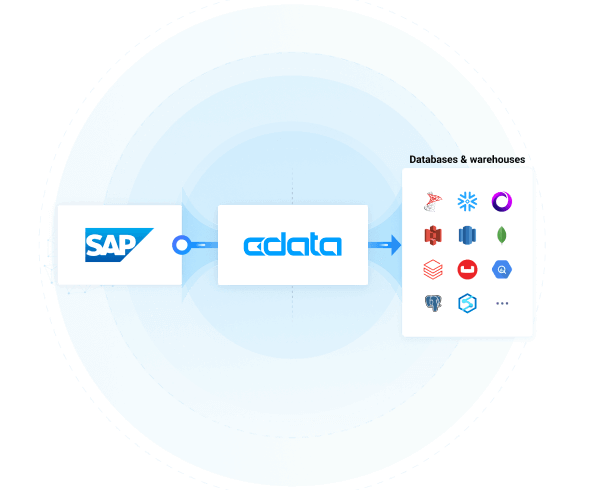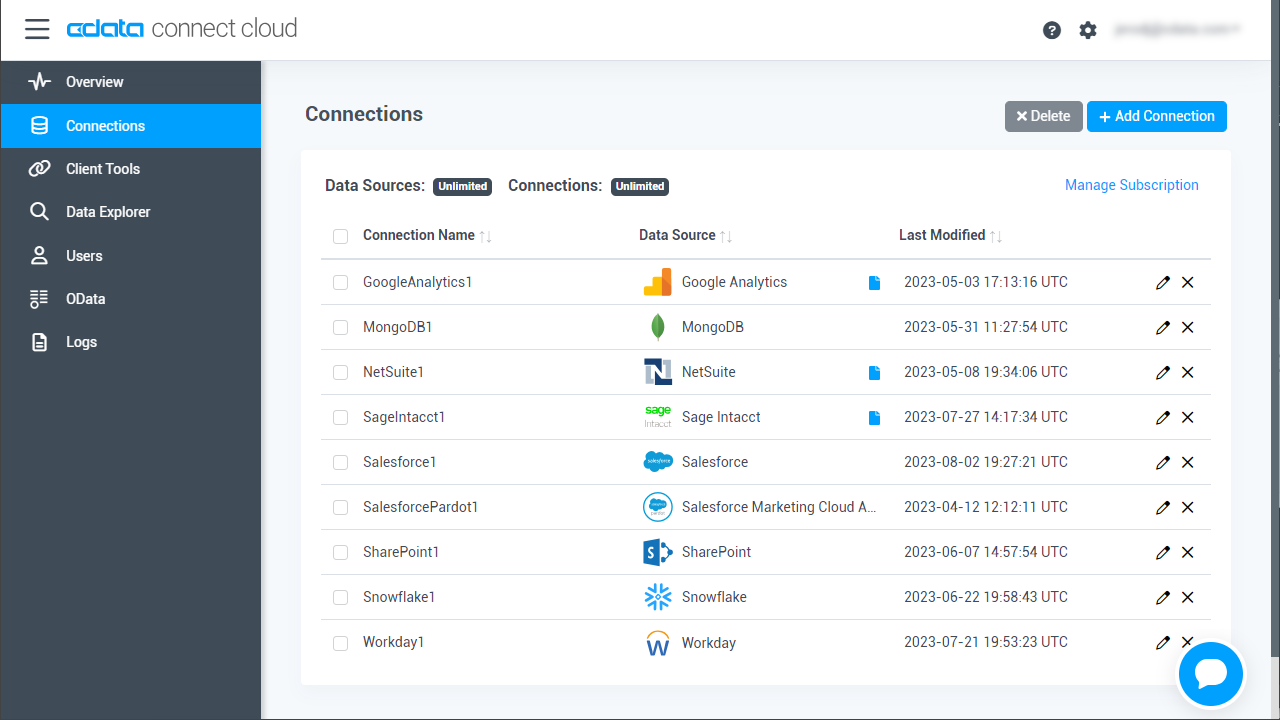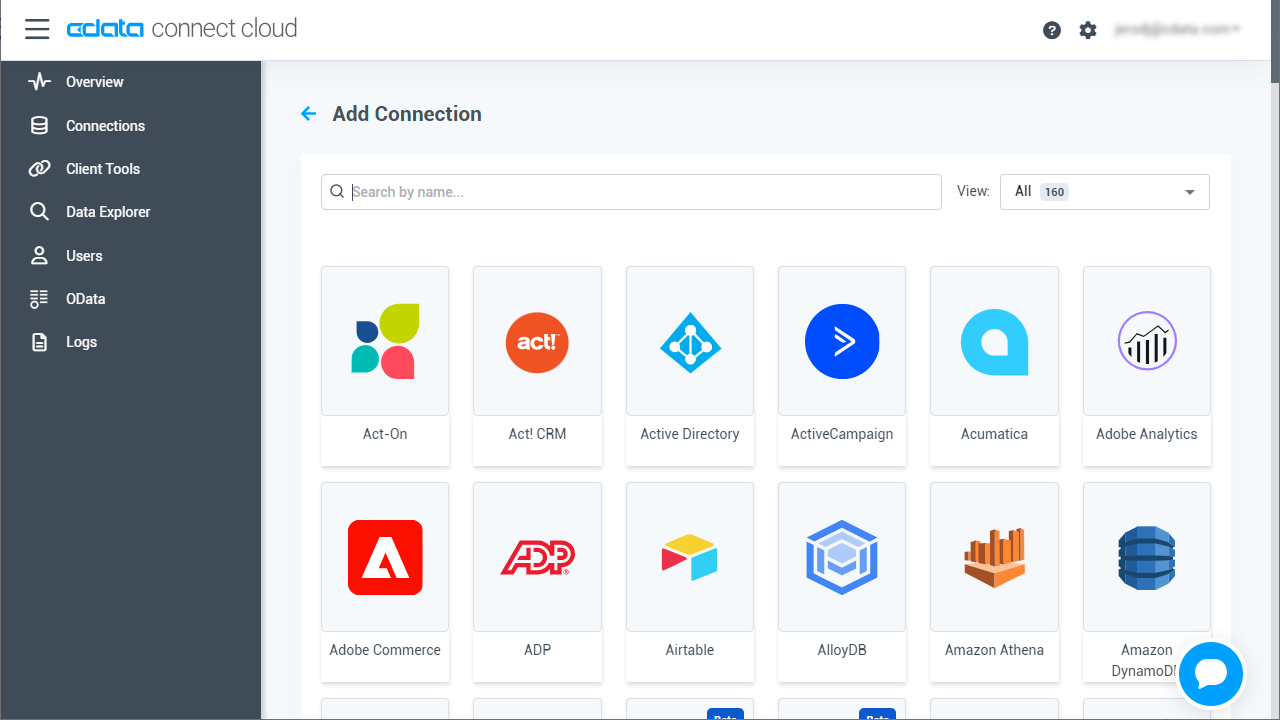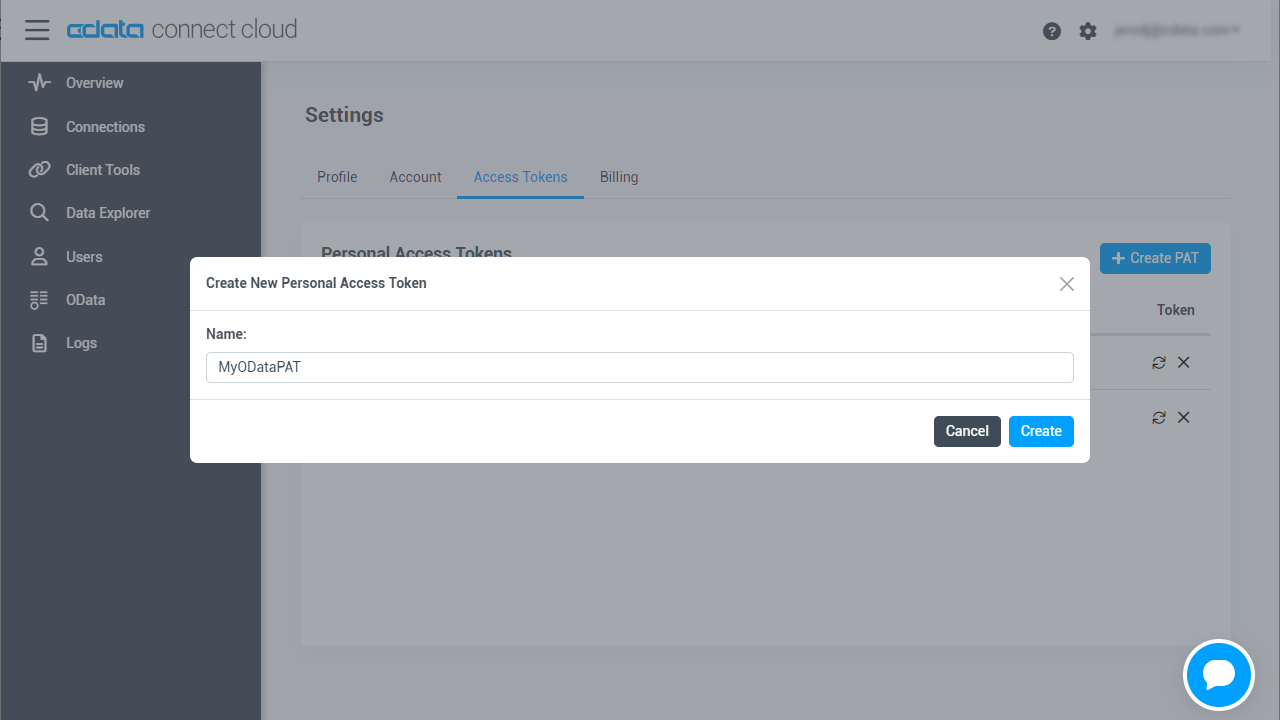Discover how a bimodal integration strategy can address the major data management challenges facing your organization today.
Get the Report →Query SQL Server Data as a SQL Server Database in Node.js
Execute SQL Server queries against SQL Server data from Node.js.
You can use CData Connect Cloud to query SQL Server data through a SQL Server interface. Follow the procedure below to create a virtual database for SQL Server in Connect Cloud and start querying using Node.js.
CData Connect Cloud provides a pure MySQL, cloud-to-cloud interface for SQL Server, allowing you to easily query live SQL Server data in Node.js — without replicating the data to a natively supported database. As you query data in Node.js, CData Connect Cloud pushes all supported SQL operations (filters, JOINs, etc) directly to SQL Server, leveraging server-side processing to quickly return SQL Server data.
Configure SQL Server Connectivity for NodeJS
Connectivity to SQL Server from NodeJS is made possible through CData Connect Cloud. To work with SQL Server data from NodeJS, we start by creating and configuring a SQL Server connection.
- Log into Connect Cloud, click Connections and click Add Connection
![Adding a Connection]()
- Select "SQL Server" from the Add Connection panel
![Selecting a data source]()
-
Enter the necessary authentication properties to connect to SQL Server.
Connecting to Microsoft SQL Server
Connect to Microsoft SQL Server using the following properties:
- Server: The name of the server running SQL Server.
- User: The username provided for authentication with SQL Server.
- Password: The password associated with the authenticating user.
- Database: The name of the SQL Server database.
Connecting to Azure SQL Server and Azure Data Warehouse
You can authenticate to Azure SQL Server or Azure Data Warehouse by setting the following connection properties:
- Server: The server running Azure. You can find this by logging into the Azure portal and navigating to "SQL databases" (or "SQL data warehouses") -> "Select your database" -> "Overview" -> "Server name."
- User: The name of the user authenticating to Azure.
- Password: The password associated with the authenticating user.
- Database: The name of the database, as seen in the Azure portal on the SQL databases (or SQL warehouses) page.
![Configuring a connection (Salesforce is shown)]()
- Click Create & Test
- Navigate to the Permissions tab in the Add SQL Server Connection page and update the User-based permissions.
![Updating permissions]()
Add a Personal Access Token
If you are connecting from a service, application, platform, or framework that does not support OAuth authentication, you can create a Personal Access Token (PAT) to use for authentication. Best practices would dictate that you create a separate PAT for each service, to maintain granularity of access.
- Click on your username at the top right of the Connect Cloud app and click User Profile.
- On the User Profile page, scroll down to the Personal Access Tokens section and click Create PAT.
- Give your PAT a name and click Create.
![Creating a new PAT]()
- The personal access token is only visible at creation, so be sure to copy it and store it securely for future use.
With the connection configured, you are ready to connect to SQL Server data from Node.js.
Query SQL Server from Node.js
The following example shows how to define a connection and execute queries to SQL Server with the SQL Server module. You will need the following information:
- server: tds.cdata.com
- port: 14333
- user: a Connect Cloud user (e.g. [email protected])
- password: the PAT for the above user
- database: The connection you configured for SQL Server (SQL1)
Connect to SQL Server data and start executing queries with the code below:
var sql = require('mssql')
var config = {
server: 'tds.cdata.com',
port: 14333,
user: '[email protected]', //update me
password: 'CONNECT_USER_PAT', //update me
options: {
encrypt: true,
database: 'SQL1'
}
}
sql.connect(config, err => {
if(err){
throw err ;
}
new sql.Request().query('SELECT * FROM Orders', (err, result) => {
console.dir(result)
})
});
sql.on('error', err => {
console.log("SQL Error: " ,err);
})










